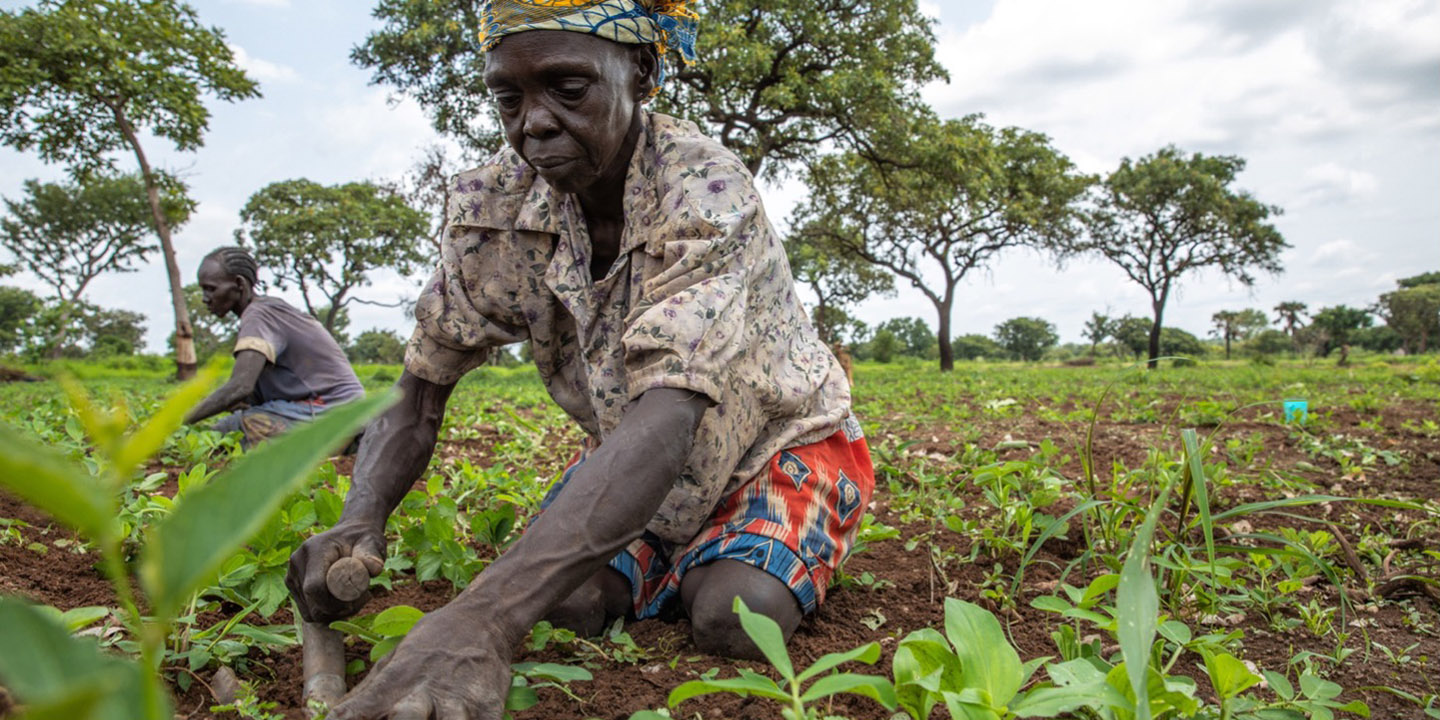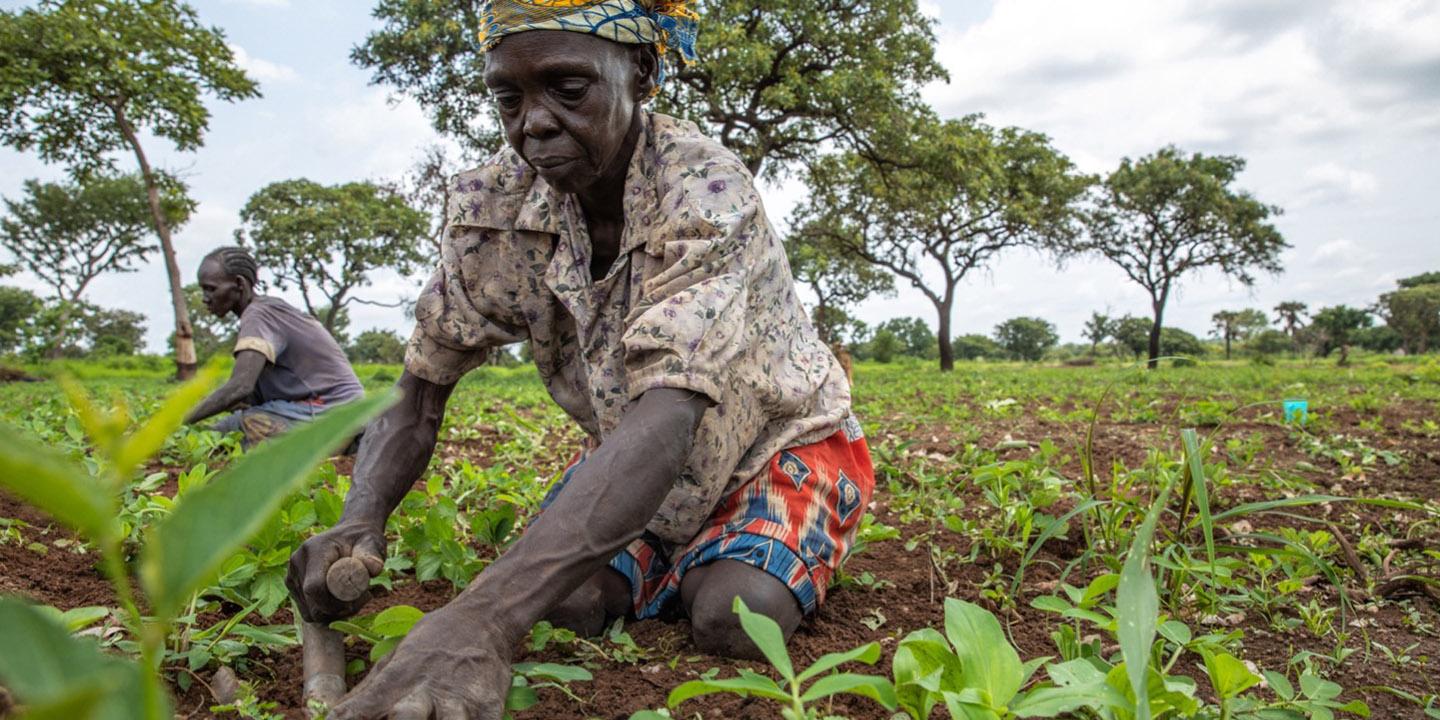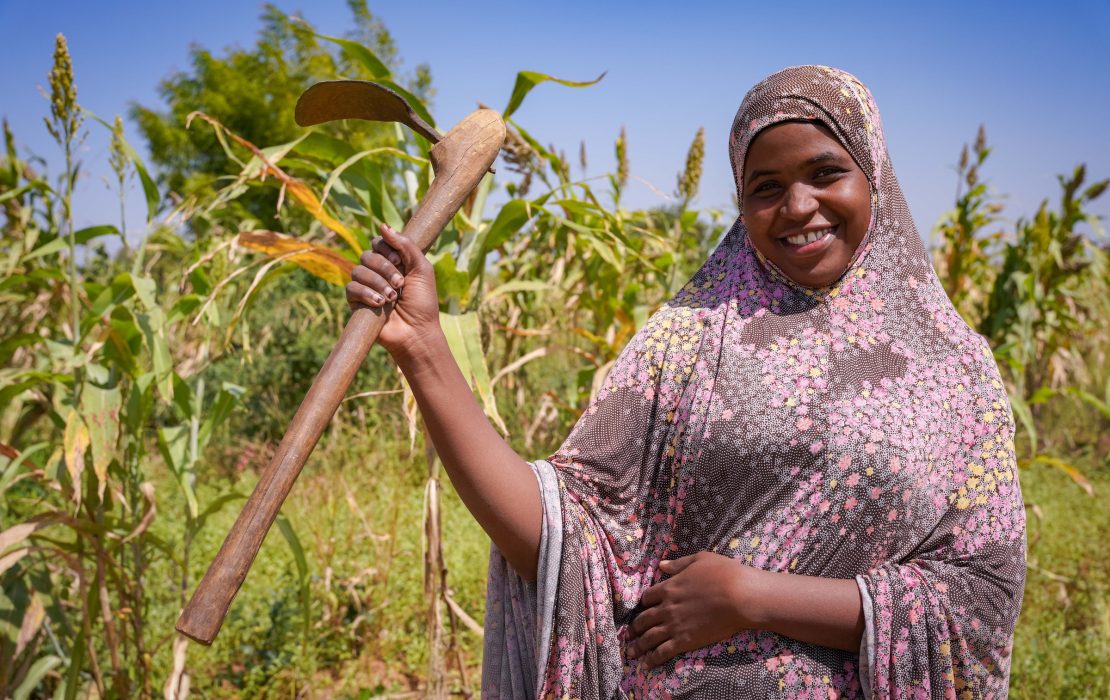
Photo: FAO

Photo: FAO
Juba, May 2024 – In a major move to combat the challenges posed by climate change and food insecurity, the government of South Sudan has launched a 5-year US$33 million project to build long-term resilience within vulnerable agro-pastoral communities.
To be implemented by World Vision with the UN Development Programme, the project will benefit around 75,000 people, more than half of them women, through watershed-based ecosystem restoration, climate-smart agricultural practices, and diversified livelihoods, as well as strengthened connections to markets. It will also contribute directly to the sustainable management of 15,000 hectares of land in a region recognized as being highly vulnerable to desertification.
“With the climate crisis only deepening, we are delighted to see this important climate adaptation project (WACRESS) launch in Juba,” said South Sudan’s Ministry of Environment and Forestry, Hon Josephine Napwon. “In partnership with the Global Environment Facility, UN Development Programme, and World Vision, it will directly improve lives and livelihoods and contribute to the three pillars of our National Adaptation Plan – building climate resilient communities, building a climate-resilient economy and development pathway, and building a climate-resilient environment.”
“We recognize that responding to climate change as well as restoring the ecosystem requires the collective efforts of all stakeholders, including the communities we intend to serve,” continued Minister Napwon. "No single agency or ministry can handle it alone. Today, we are demonstrating our commitment to coming together to deliver on our objectives and promises.”
Around 95 percent of South Sudan’s population relies on climate-sensitive natural resources, making them extremely vulnerable to rising temperatures, more erratic rainfall, and more frequent extreme weather events driven by climate change.
Strategies adopted by farmers to cope with environmental degradation have further depleted soils, leading to conflicts over land. Extension agencies lack the capacity to support communities to adapt, while at a national level, climate change is not adequately addressed in agricultural policy and plans. The absence of developed markets and disrupted value chains also present challenges.
Prolonged periods of conflict have left the nation grappling with the highest levels of food insecurity globally.
Under the project, market linkages and agricultural value chains will be re-established and strengthened, while extension agencies will be equipped to support farmers to take up climate-smart agricultural practices – for example, multi-cropping, or planting two or more kinds of crops in the same field – and to adopt new livelihoods, for example beekeeping and kitchen gardens.
Farmer field schools will be established and community-based organizations, including women self-help groups and farmer associations, empowered to support the take up of new practices.
Recognizing the vital role of functioning ecosystems in livelihood security and disaster risk reduction, watershed approaches that integrate soil and water conservation and management will be put in place with communities at the forefront.
At the national level, the project will work to integrate climate change considerations across agriculture and natural resources management plans and programmes, fostering proactive collaboration and knowledge-sharing with other initiatives.
‘The WACRESS project is a flagship project for South Sudan,” said World Vision Country Director in South Sudan Dr. Mesfin Lola. “It aims to achieve sustainable livelihoods to address hunger and malnutrition. Our goal is not only to ensure the success of this project, but also to pave the way for more opportunities and larger-scale projects in South Sudan. This is just the beginning of a transformative journey.”
“Climate change presents significant challenges to societies, ecosystems, and economies globally,” said UNDP Resident Representative in South Sudan, Mr. Dominic Sam. “Tackling the impacts necessitates collective action and international cooperation…By empowering local communities, harnessing technology, and mobilizing resources, UNDP plays a crucial role in nurturing environmental stewardship and promoting a more sustainable future for generations to come.”
The project is supported by a $10 million from the Global Environment Facility’s Least Developed Countries Fund, complemented by in-kind assistance valued at $17,209,211 from the Government of Sudan and cash injection of $4,868,421 and contributions from other partners.
For more information and media inquiries, please contact:
Francis Harold Kasangu WACRESS Project, Senior Project Manager, World Vision South Sudan francis_kasangu@wvi.org | Mobile:+211927910965
Maureen Omwanda Communication Analyst, UNDP South Sudan maureen.omwanda@undp.org | Mobile:+211920149980
About UNDP
UNDP is the leading United Nations organization fighting to end the injustice of poverty, inequality, and climate change. Working with a broad network of experts and partners in 170 countries, UNDP helps nations to build integrated, lasting solutions for people and the planet.
About World Vision
About World Vision
World Vision is a Christian humanitarian organization conducting relief, development, and advocacy activities in its work with children, families, and their communities in nearly 100 countries to help them reach their full potential by tackling the causes of poverty and injustice. World Vision serves all people regardless of religion, race, ethnicity, or gender. For more information, please visit worldvision.org/about-us/media-center or on Twitter @WorldVisionUSA.
About the Global Environment Facility
About the Global Environment Facility
The Global Environment Facility (GEF) is a family of funds dedicated to confronting biodiversity loss, climate change, pollution, and strains on land and ocean health. Its grants, blended financing, and policy support help developing countries address their biggest environmental priorities and adhere to international environmental conventions. Over the past three decades, the GEF has provided more than $23 billion and mobilized $129 billion in co-financing for more than 5,000 national and regional projects.
Additional Notes to Editor
According to the World Food Programme, approximately 7.7 million people in South Sudan are facing severe food insecurity. Four consecutive years of record flooding has led to widespread displacement, the destruction of livelihoods and the loss of arable land – contributing to rising hunger.
Livelihoods of 95 percent of communities in South Sudan and its economy are dependent on climate sensitive natural resources and agriculture which have been disrupted by years of conflict and insecurity. These livelihoods can only be rebuilt and sustained if communities are able to adapt to climate change by adopting locally relevant climate-smart techniques and technologies.
A high proportion of the population in South Sudan is comprised of vulnerable groups, including Internally Displaced Peoples (IDP), and persons with disabilities.
Rainfall variability is the greatest determinant of agricultural production in South Sudan, causing droughts across the country and floods along the floodplains. Nearly 70% of the variability in the production of cereals and grains can be explained by variations in rainfall.

